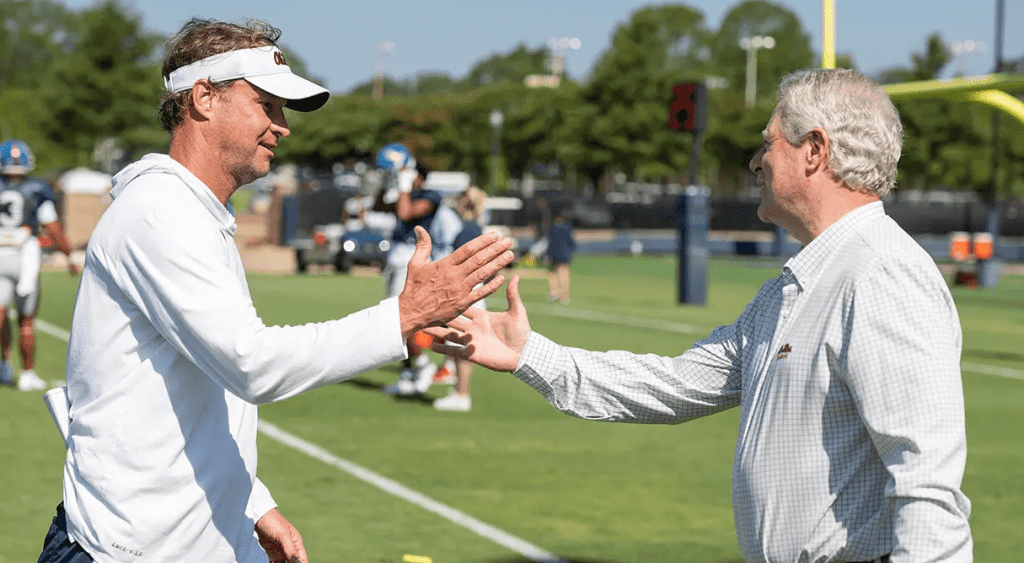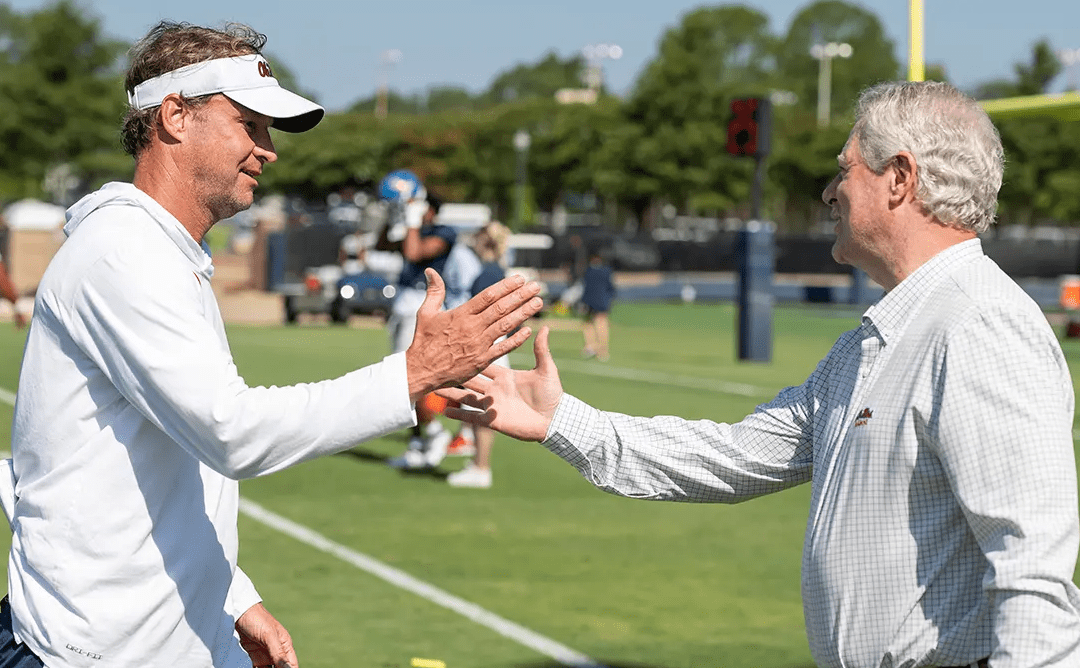By: Frank Corder, Magnolia Tribune

Chancellor Glenn Boyce (right) greets coach Lane Kiffin at an Ole Miss football practice. Boyce has been named to a two-year term on the NCAA Board of Governors and a four year-term on the board of directors. (Photo by Thomas Graning/Ole Miss Digital Imaging Services)
Glenn Boyce has led the University of Mississippi since 2019.
Southeastern Conference (SEC) Commissioner Greg Sankey recently announced that Ole Miss Chancellor Glenn Boyce has been appointed to the NCAA Division I Board of Governors and Board of Directors.
The NCAA Board of Governors is the highest governance body in the NCAA and is composed of institutional chief executive officers that oversee Association-wide issues. Boyce is now one of 16 voting board members.
The NCAA Board of Directors is responsible for strategy and policy and overseeing legislation and management of the division. The board focuses on strategic topics in college sports and their relationship to higher education and monitors legislation to ensure it does not conflict with policies and goals, among other responsibilities.
Boyce, appointed to lead Ole Miss in 2019, is the 18th chancellor at the University of Mississippi. The appointment to the NCAA boards is for a four-year term, which began immediately.
SEC Commissioner Sankey said in a statement that Boyce’s experience and understanding of issues across the national landscape of intercollegiate athletics will be beneficial at a critical time in the history of college sports.
“The SEC is fortunate to have a leader like Chancellor Boyce representing the Conference on the important issues facing all of us in college athletics,” Sankey said.
In a statement issued by Ole Miss, Boyce said the university values the vitality of its athletics programs and understand how athletics experiences draw people together, create community and support the aspirations of our talented student-athletes.
“The work of the NCAA is important to ensuring that all levels of collegiate programs continue to thrive and provide unparalleled opportunities and experiences,” Boyce said.

